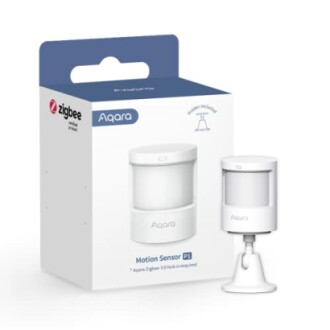
Smart Sensors: What You Need to Know
Key Takeaways
- Smart sensors play a crucial role in enhancing home security.
- Understanding the different types of smart sensors can help you choose the right ones for your needs.
- The Aqara Motion Sensor P1 is an excellent choice for effectively monitoring and automating your home.
- Integration with platforms like HomeKit, Alexa, and IFTTT enhances the utility of smart sensors.
In an age where technology is constantly evolving, smart sensors have become integral to effective home security systems. They enhance safety, automate tasks, and offer peace of mind. Understanding how these sensors function, the various types available, and their capabilities can empower homeowners to make informed decisions about their security solutions.
What Are Smart Sensors?
Smart sensors are devices that can detect changes in their environment and relay that information to a central hub or directly to users via a mobile app or other interfaces. They are integral components of smart home systems and can enhance both security and energy efficiency in the home.
How Do Smart Sensors Work?
Smart sensors operate by collecting data through various means—such as motion detection, temperature sensing, or light level detection. This data is then processed in real-time to provide alerts or trigger responses, such as turning on lights or notifying homeowners about intrusions.
Types of Smart Sensors
There are several types of smart sensors used in home security systems, each serving unique purposes:
| Type of Sensor | Description |
|---|---|
| Motion Sensors | Detect movement within a designated area, sending alerts when motion is detected. |
| Door/Window Sensors | Trigger alerts when doors or windows are opened or closed. |
| Environmental Sensors | Monitor conditions such as temperature, humidity, and smoke, providing alerts in case of anomalies. |
| Camera Sensors | Capture video footage and detect motion, serving as a visual deterrent against intrusions. |
Why Use Smart Sensors in Home Security?
Smart sensors provide numerous benefits, including:
- Enhanced security through constant monitoring.
- Home automation capabilities to simplify everyday tasks.
- Integration with other smart devices for a cohesive ecosystem.
- Real-time alerts to keep homeowners informed.
Featured Product: Aqara Motion Sensor P1
Aqara Motion Sensor P1 (Upgraded Version)
The Aqara Motion Sensor P1 features an impressive 5-year battery life and is compatible with various smart home systems, making it an excellent choice for home security automation.
Learn MorePros and Cons of Using Smart Sensors
Pros
- Easy integration with existing smart home systems.
- Automation of various home functions for convenience.
- Real-time notifications enhance security.
- Low power consumption, especially in modern sensors.
Cons
- Requires a stable internet connection for optimal performance.
- Initial setup can sometimes be complex for non-tech-savvy individuals.
- Compatibility issues might arise with specific devices.
Frequently Asked Questions
1. How do I choose the right smart sensor for my home?
When choosing a smart sensor, consider factors such as the areas you want to monitor, the specific features you need (like motion detection or environmental monitoring), and compatibility with existing systems.
2. Can smart sensors work without an internet connection?
Most smart sensors operate through a home network; however, some devices may offer localized options or can function without continuous connectivity. Refer to the specific product manuals for details.
3. What systems are compatible with the Aqara Motion Sensor P1?
The Aqara Motion Sensor P1 is compatible with various platforms, including Aqara Home, HomeKit, Alexa, and IFTTT, ensuring it can integrate seamlessly into your smart home ecosystem.
Conclusion
Smart sensors are invaluable assets to any home security system. Their ability to enhance safety, automate tasks, and offer real-time monitoring can significantly uplift your home security. The Aqara Motion Sensor P1 is just one exemplary product that showcases the capabilities and benefits of modern smart sensors.

